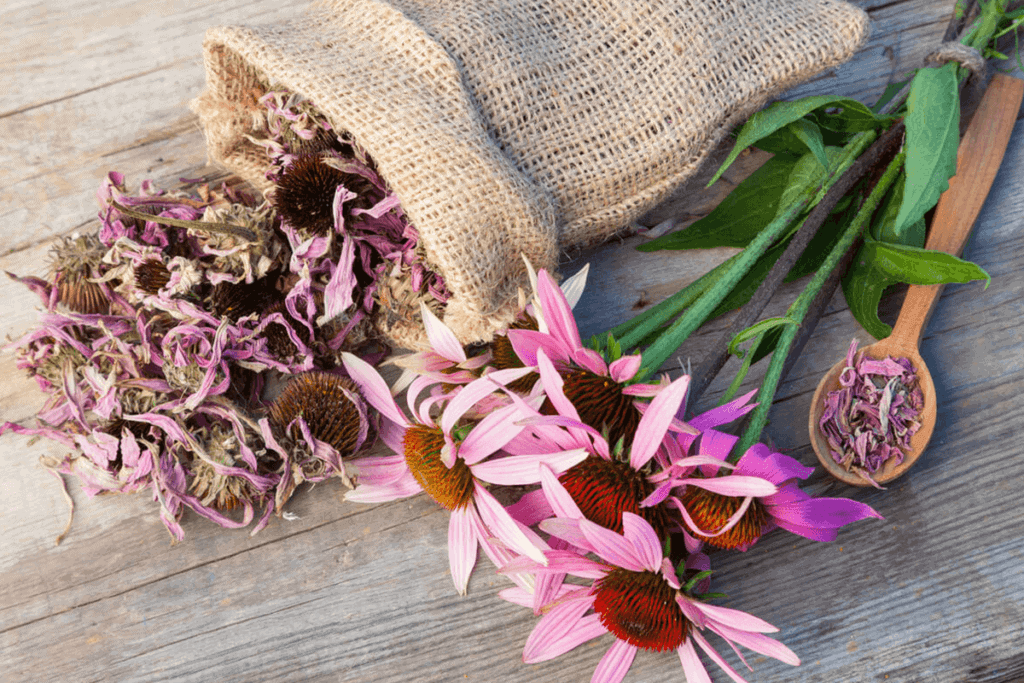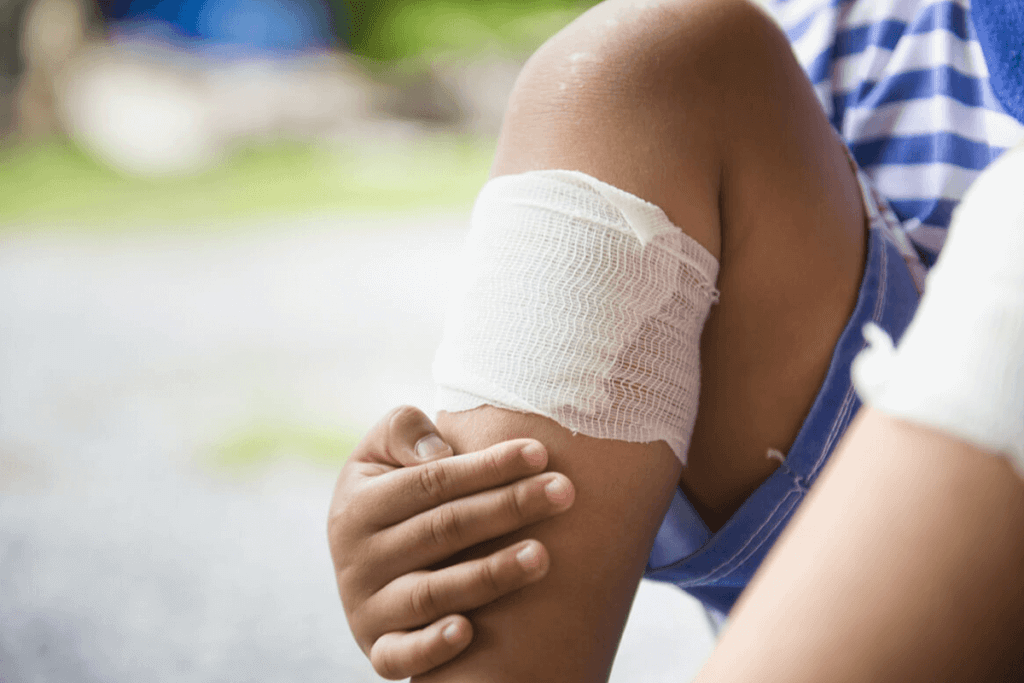
Types and Forms of Echinacea
A popular herbal supplement, echinacea is derived from a North American flowering plant. Echinacea is available in several different forms, including tinctures, teas, capsules, tablets, and topical creams. Some supplements use the root of the plant, while others use the above-ground parts, including the flowers. (2) It’s important to note that not all echinacea is created equal. In fact, “echinacea” is a broad term that refers to several different species of plants. Some of the most commonly available and thoroughly researched species include Echinacea purpurea, Echinacea angustifolia, and Echinacea pallida. (2)Echinacea Health Benefits
With several species and supplement forms of echinacea available, it can be difficult to interpret the existing research. Let’s take a look at what the current research tells us about the health benefits of echinacea.1. Treats the Common Cold
When cold and flu season begins, you may hear about building your resilience with echinacea. Echinacea had been traditionally used in the United States and Europe for the treatment of the common cold. (2) However, research findings of studies examining the use of echinacea for colds and upper respiratory infections is mixed. For example, an analysis of 24 studies on the use of echinacea for the common cold concluded that there’s no evidence to broadly recommend using echinacea for treating the common cold. Researchers did, however, find that taking echinacea to prevent colds may be effective. (3) This review, which included data from studies that used different species of echinacea, different parts of the plant, and varying dosages, concluded as a result that certain types of supplements may be more effective than others. (3)
2. May Accelerate Wound Healing
When you have a skin wound, your body’s first step in the healing process is to trigger the inflammatory response. However, if you’re under stress, your immune system can delay that response. Since echinacea is used to modulate the immune system, it has been suggested as a way to accelerate wound healing.
3. Treats Itchy Skin
Itchy skin, whether it’s a result of eczema, dermatitis, or just plain dryness, can be quite uncomfortable. It’s possible that a topical treatment containing Echinacea purpurea root extract could help put an end to the itch. In one study, researchers found that adults with itchiness either on the body or on the scalp found using emulsions or shampoo containing echinacea significantly relieved dryness and itchiness. (4) If you suffer from itchy skin or scalp, it might be worth giving an echinacea cream or shampoo a try.Is Echinacea Safe?
In general, echinacea is considered safe over a short period over time – per the National Center for Complementary and Integrative Health. Research hasn’t yet determined whether there are any risks of long-term use. (6) Some people experience nausea or stomach ache when taking echinacea. Be sure to take it with food or a full glass of water to make it easier on your stomach. (6)Can People Be Allergic to Echinacea?
Allergic reactions to echinacea are rarely reported. (6) We recommend that you always talk to your integrative healthcare practitioner before taking echinacea, or if you’re pregnant or breastfeeding. It’s also a good idea to talk to your practitioner or pharmacist about how echinacea might interact with any other medications or supplements you’re taking.Echinacea Can Boost Immunity and Support Itchy Skin
In spite of the many variables surrounding types, plant parts, and forms of echinacea supplements available, it remains a very popular supplement for modulating the immune system, improving wound healing, and treating skin conditions. While the evidence remains inconclusive, the herb has been used for centuries with very few negative reactions reported. If you’re looking to boost your immunity to ward off colds and upper respiratory infections, or if you suffer from itchy skin or poor wound healing, echinacea may be helpful.- Chaushu, L., Weinreb, M., Beitlitum, I., Moses, O., & Nemcovsky, C. E. (2015). Evaluation of a topical herbal patch for soft tissue wound healing: An animal study. Journal of Clinical Periodontology, 42(3), 288–293.
- Hostettmann, K. (2003). History of a plant: The example of echinacea. Complementary Medicine Research, 10(1), 9–12.
- Karsch‐Völk, M., Barrett, B., Kiefer, D., Bauer, R., Ardjomand‐Woelkart, K., & Linde, K. (2014). Echinacea for preventing and treating the common cold. Cochrane Database of Systematic Reviews, 1(2).
- Kilic, A., Harder, A., Reich, H., Knie, U., Masur, C., & Abels, C. (2018). Efficacy of hydrophilic or lipophilic emulsions containing Echinacea purpurea extract in treatment of different types of pruritus. Clinical, Cosmetic and Investigational Dermatology, Volume 11, 591–602.
- Kligler, B. (2003). Echinacea. Am Fam Physician, 67(1), 77-8-.
- National Center for Complementary and Integrative Health. (2020, July). Echinacea. Retrieved from https://www.nccih.nih.gov/health/echinacea
- Schapowal, A., Klein, P., & Johnston, S. L. (2015). Echinacea reduces the risk of recurrent respiratory tract infections and complications: a meta-analysis of randomized controlled trials. Advances in therapy, 32(3), 187–200.
- Shah, S. A., Sander, S., White, C. M., Rinaldi, M., & Coleman, C. I. (2007). Evaluation of echinacea for the prevention and treatment of the common cold: A meta-analysis. The Lancet Infectious Diseases, 7(7), 473–480.
- Zhai, Z., Haney, D. M., Wu, L., Solco, A. K., Murphy, P. A., Wurtele, E. S., … Cunnick, J. E. (2009). Alcohol extract of Echinacea pallida reverses stress-delayed wound healing in mice. Phytomedicine, 16(6–7), 669–678.





